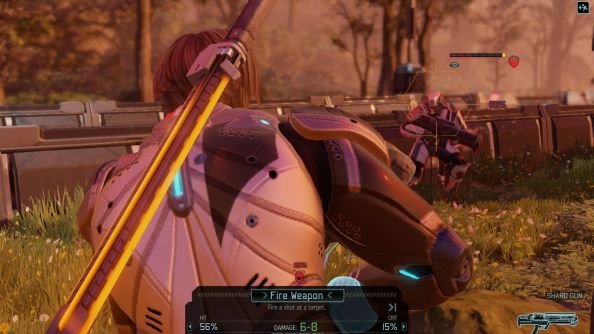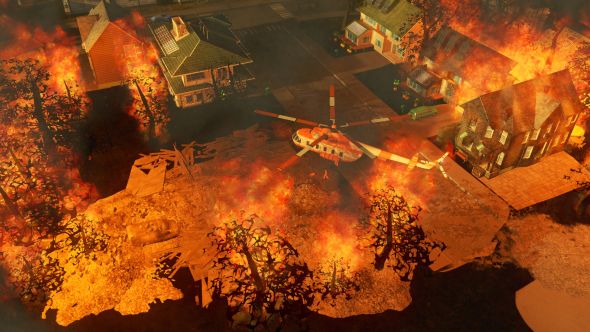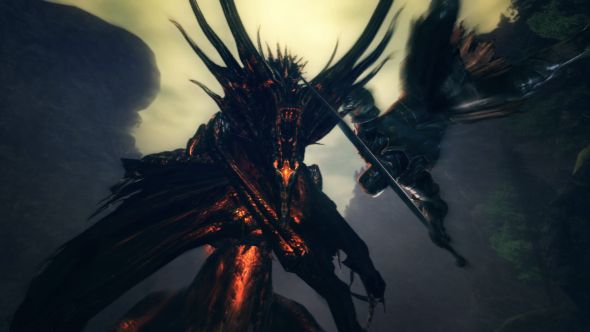You’ve had an awful day. The power went out overnight so this morning you poured sour milk all over your Frosties. You’ve worked super hard at your job in widgetry, signing up clients left and right, because there’s a promotion coming up. But today you heard it went to Chadley. Chadley’s a dick with a dick’s name, and you know for a fact that his analytimicals were way worse than yours this cycle. He only got it because he’s a suck-up who knows the boss from their monthly spin-yoga class.
Then, on the bus home, your partner dumped you by text, because the cat got out again this afternoon. And to cap it all, on your doorstep just now, some thug stabbed you and stole your wallet.
The best PC games ever wouldn’t treat you like that. That’s why they’re the best.
Life’s not fair. Sometimes these things just happen, but why do they all have to happen to you? Feeling pretty put upon – and grasping your bleeding abdomen, let’s say that’s less urgent than it sounds – you collapse in front of your PC, and fire up your favourite game. What happens?

You play for a couple of hours, and you get results. You complete a couple of errands, get experience, level up, and a nice person who understands the concept of reciprocity gives you a new widget. In short, you put work in, the game processes it, and you get a reward. Ideally the reward will meet or exceed your expectations, but what matters is that it comes consistently: put work in, get paid. Every time.
When you turn the computer off, you’ve achieved something, even if it is only in a game. Moreover, you’ve put a few hours’ distance between yourself and your awful day, and with that distance comes perspective. Things don’t seem so bad now, and maybe you’re already thinking of solutions. You’ll call your partner, apologise, talk it out. If they’re still mad over something so trivial, hey, maybe you’ve dodged a bullet. The promotion thing sucks, but you’ll get another chance, maybe when your boss figures out Chadley is in over his head and fires him, consigning him to a deserved life of destitution and ignominy. Dick.
That’s how it would work in a game, anyway. Games imitate life in that they are boxes of systems which process input and return output. Of course, most of life’s systems are much more complicated, hence we have less understanding of how to master them, hence we have less control over their output. For one, other people are invested in the same systems, and are endlessly inventive in finding ways to shit things up. Not that they necessarily have to; life offers a truckload of complications beyond anyone’s control, from that bastard cancer to earthquakes, meteor strikes and black holes.

If you turn to games when you’ve been on the stiffening end of one of life’s many vicissitudes, perhaps you think you’re just looking for an escape, a temporary reprieve from your awful day in the fantasy of slaying a dragon or bedding a sexy alien. At a superficial level I’m sure that’s true – these things are awesome – but I think many of us enjoy games because they satisfy a deeper fantasy: that hard work pays off, or that there is such a thing as justice.
It explains why we get so angry when we come across a game that isn’t fair. The prevalence of listicles grousing about such games proves my point; we obsess over bosses like Mike Tyson or the Bed of Chaos (which barely counts as a boss, etc etc), because they offend our sense of natural justice by dumping on us arbitrarily. Games which dispense feeble rewards for Herculean efforts are another piss-take. What’s that? You want me to collect every feather in Italy for a cape that makes guards attack me? Hey, I just got to the centre of the galaxy, what do I get? Oh, I get to do it all again? Pardon me, I’m now angry enough to punt a puppy into a wood chipper, so I’d better see to that.
This is why game designers, especially those who make difficult games, have to be so careful that the challenge feels fair and consistent. Not everyone would choose a difficult game to unwind after a rough day, but the need to feel a fundamental justice in the way the game responds to the player is, I think, crucial in all games. After all, what’s the chirruping refrain of Dark Souls fans? Hard-but-fair, *squawk*, hard-but-fair. *Flagellates self*.

The only exception I can think of is Unfair Mario, which only gets away with it by being so explicit about its injustice that it’s right there in the title. Unfairness is thus aligned with the player’s expectations, and that’s the point; unless you tell us we’re about to get screwed over, it is in our nature to expect – nay, to demand – justice. As a commentary on humanity, I find this very reassuring.
I mentioned earlier that life can dump on you because other people are involved, as if to imply that they aren’t in videogames. Of course, this is only true as long as we’re talking about single-player games, but if anything, we value fairness even more in multiplayer. Here, as in life, we compete with a human element that can’t be controlled. Consequently, we insist on a balanced meta game, what used to be called ‘a level playing field’ back when sportspeople cared about sportsmanship. And caps lock keys the world over will clack in chorus – rant mode engaged – should gamers discover a broken weapon, hero, or strategy that upsets this delicate balance, especially if it’s out of reach of most players. Again, we demand fair play.
It’s often said that games are fun because they let us be who we want to be but can’t. Indeed, some critics of the hobby point to terrorist-hunting shooters as evidence that games are harmful, because they indulge very base fantasies. But look past the cosmetics, and you’ll find a set of clear rules that produce a consistent output for every unit of the player’s input. I think most of us find this aspect of gaming more valuable than we tend to notice, and it indulges a much nobler fantasy: that you get out what you put in, that justice exists, that life is fair.
